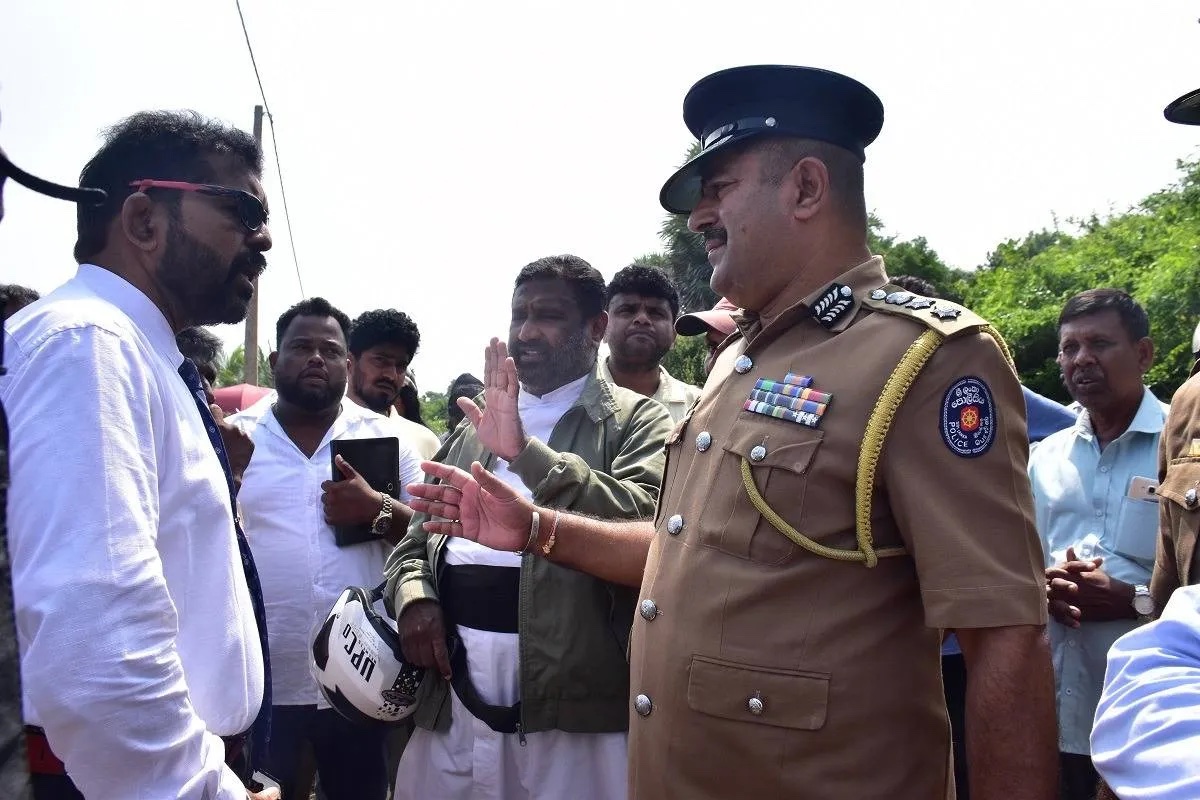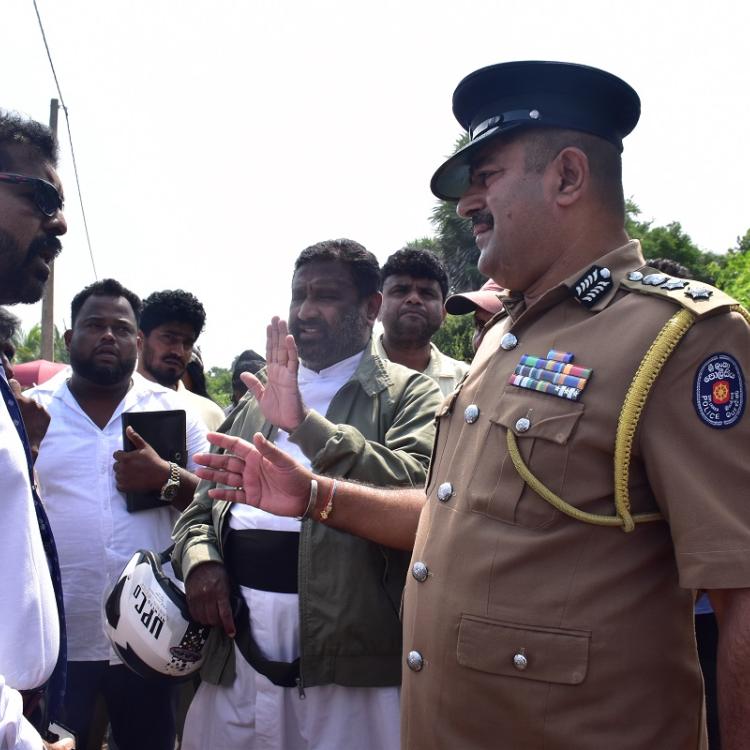
Sri Lankan police withdrew a case this week against Eelam Tamil protesters in the Olaithuvadai area of Mannar, who were opposing a heavy mineral sand mining project proposed by the Australian company Titanium Sands Limited (TSL).
The proposed sand mining project has recently advanced, with Sri Lanka's Central Environmental Authority (CEA) moving forward to draft the Terms of Reference (TOR) required for the project’s Environmental Impact Assessment (EIA). This development has heightened fears among local communities about the potential for irreversible environmental damage and the displacement of Tamil families from their ancestral lands.
The protest in Olaithuvadai reflected these concerns, particularly over the threat to Mannar’s fragile ecosystems and the livelihoods of local Tamil communities. Mannar’s coast is home to coral reefs, mangrove forests, and coastal resources critical for fishing, salt production, and small-scale agriculture. Protesters fear that the sand mining project could destroy these natural assets, leaving lasting harm to the environment and their way of life.
Despite this, Sri Lankan police in Mannar initially filed a case against the demonstrators under Article 106 of the penal code, submitting Form B to the Mannar Magistrate’s Court. This week, however, the case was withdrawn.
The sand mining project has been backed by key government organizations, including the Central Environmental Authority (CEA), the Geological Survey and Mines Bureau (GSMB), and the Board of Investment (BOI). In 2023, Titanium Sands entered a partnership with James Global, a Sri Lankan private mining firm led by Aelian Gunawardene. This agreement followed the 2022 revocation of Titanium Sands' exploration licenses. Gunawardene’s name frequently appeared in TSL’s correspondence with the GSMB and in documents submitted to the CEA for the EIA application. However, Gunawardene later stated that his company had terminated its agreement with TSL prior to the EIA submission. He urged the company to stop misusing his name, saying, “They should make sure that they remove my name from all applications and stop misusing my reputation.”
TSL has been involved in the Mannar Island sand mining project since 2015, reporting an initial mineral resource of 10.3 million tonnes. The company continued drilling in 2016 and 2017, publishing the results in 2018. Despite government enthusiasm for foreign investment in the mining sector, reports indicate that mining contributes only 0.5% of Sri Lanka’s export earnings, amounting to $52 million annually.
The sand mining project is not the only controversial development in the Mannar region. Successive Sri Lankan governments have pursued projects that many Eelam Tamils view as illegal or exploitative. These include the wind power project by Indian conglomerate Adani, the de-gazettement of the Vidataltivu Nature Reserve, Chinese-funded sea cucumber farming, and the sale of natural gas basins to India and China. Additionally, Tamil residents have faced land grabs, illegal Sinhalese settlements, deforestation, and restrictive fishery laws that threaten their livelihoods. These actions have compounded the marginalization of Tamils in the region.
Accusations have also been levelled against TSL for allegedly attempting to acquire land without proper consent from Tamils. Many fear that they may be forcibly removed or lose access to their ancestral lands. This deepens their sense of injustice, as they have long faced displacement and neglect by the Sri Lankan government.

